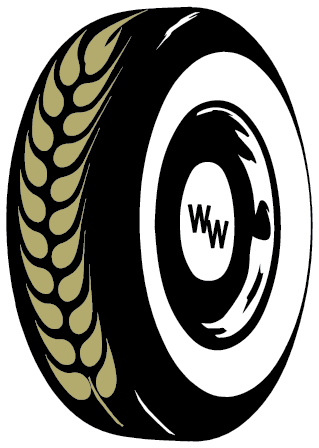From Brewery To Tap: A Foamy Ride
It was an unfamiliar sight a few weeks ago...
...the SUN.
And it was beating down through a floor-to-ceiling window onto about half a dozen kegs.
Full kegs.
This is a problem. And it's what the rest of this post is about. You're about to be schooled on the life of a keg after it leaves the loving arms of its brewer/s. So, keep your hands and feet inside the teacup and hold on tight. It's going to be a foamy ride.
I kid you not, those kegs were baking away in the full sun. It was still early on a Friday and I hadn't switched to beer yet but I heard one of the servers say that he was going to tap a keg of insert-new-and-popular-brewery-whose-beers-I-admire-here's Kolsch. Having not yet spied the crappy storage solution of queued kegs, I ordered one.
The wonderful thing about a Kolsch is that it's a crisp, refreshing beer with good body and mouthfeel for its lightness. It's a touch sweet with a bright, dry finish. Simply delicious when done right. The style leaves no room for errors and the brewery that can pull it off shows a technical efficiency that is to be praised. Of course we have lots of great breweries around here so finding a decent Kolsch isn't that big of a deal, but it's still a style I will always appreciate.
Meanwhile, they were having trouble pouring my beer. The server complained that this particular tap was always foamy and it took a while to "settle down". After watching him dump a couple of pints of foam, I stopped him, ("Don't waste it! Kids in Chicago are crying.") and told him I would wait. That's when I saw the rest of the kegs sitting there like a bunch of rotisserie chickens.
"Is that where you had the keg...?" I asked.
"Yeah. That's where we keep them all."
...
"...you know that if your keg is at room temperature you need to leave it in the cooler at least 24 hours before tapping it?" I offered.
Uncomfortable silence. I had a feeling he was looking at me and thinking I know an awful lot about beer for a girl.
"We just don't have the cold storage space," he said.
And there you have it.
Look, beer is actually a pretty fragile thing. Especially craft beer. It's unfiltered, unpasteurized and won't hold its own with the cockroaches during a nuclear holocaust like some macros I could name. Your precious micros are a delicate balance of elements: flavor, texture, carbonation and alcohol, and exposing these things to the rest of, well, nature, is going to change them. Most of the time, not for the better. I know I sound like a total snob here, but I don't care. Just listen.
When I finally got my beer, it was skunked, or light-struck, as the professionals would put it. Tasted like a skunk's butt. I'm pretty sure the brewery from whence it came did not intend for me to think of a mammal's ass when I took my first sip. Some of you out there will say, "but the beer was in a keg, how could it get skunked?" since they understand that sunlight affects the nature of hop flavor through clear or green glass. Fair enough, but here's my note to you: temperature fluctuations from brewery --> distribution van --> warehouse --> van --> warm storage under our brightest burning star can do funny things to beer. They also might have let my pint sit in the sun to let the foam settle out, then topped it off. Which is yet another problem.
And this is only a fraction of the things that can go wrong after beer leaves a brewery. The middle man can also be an issue. Many of our local breweries self-distribute but if you go through a distributor, your middle-man may not have your brew's best interests at heart. They may not even know what those interests are.
Consider this: I had a pint of our cream ale at one of my favorite watering holes in South King County several months ago. I know this place cleans their lines regularly and they've had this particular beer on before with no problems. But this pint tasted like a Brett-fermented saison. Come to realize, that keg was OLD and stored improperly. The distributor had been sitting on it for a very long time and time is no friend to beers like the Traction Control. This wasn't an isolated incident and, obviously, we no longer use that distributor.
I mentioned line-cleaning. I don't want to spoil your dinner but take a look at this if you're a glutton for punishment:
You can't tell me that doesn't affect the flavor of your pint!
As people with a passion for brewing and a passion for sharing what we make, we ask that you consider these things when you drink our beers in other places. There's no way in the world we would put a pint in front of you that is off, unintentionally-soured or otherwise. But there are just some things that are beyond our control. We can't monitor the storage, pouring and line-cleaning habits of every bar our distributor decides to sell to, but we can keep on top of our distributors to treat our beer with the respect it deserves.
We're pretty sure you like us and want what's best. If you come across a pint of ours that doesn't taste like it should, we'd appreciate knowing. That's how we can more closely monitor the quality control beyond our tasting room.
And, yes, I drank that Kolsch, skunk butt and all. Crying children in Chicago, you know.
